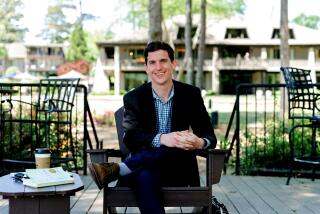‘We want to study you.’ For black Angelenos, coronavirus triggers fear of another Tuskegee
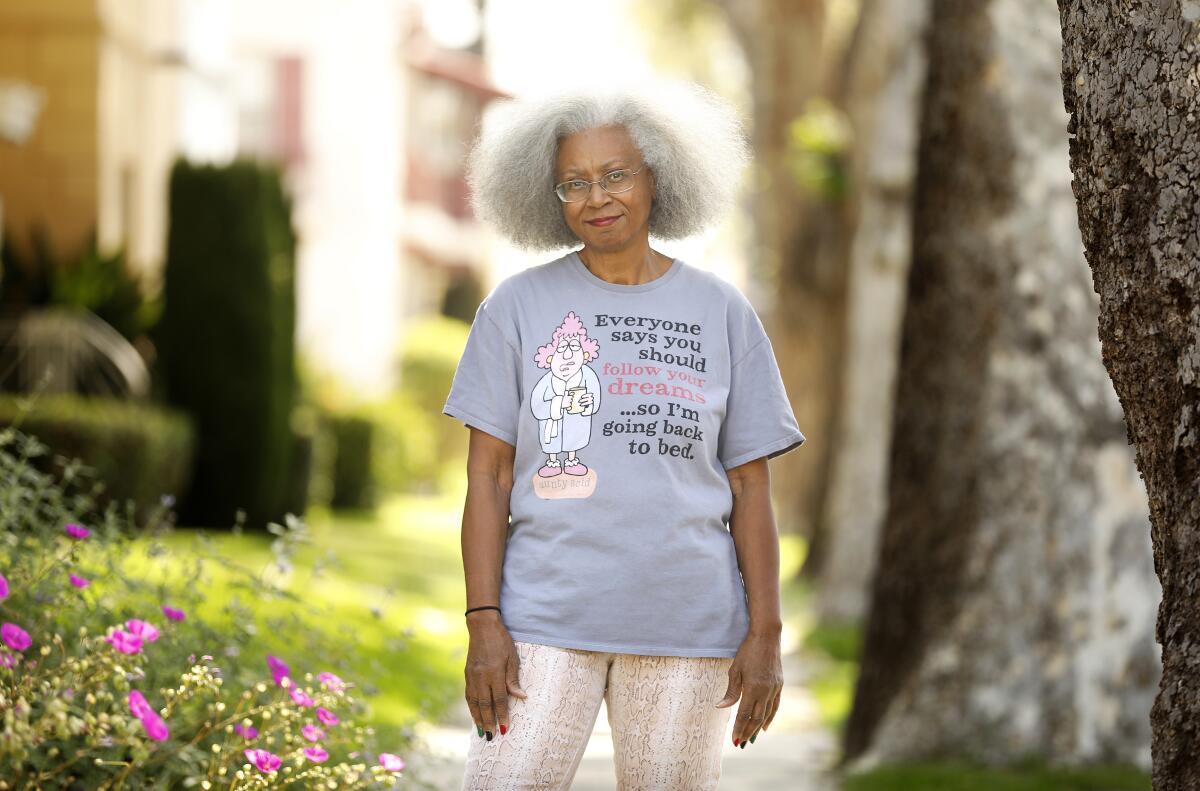
The invitation to participate in a COVID-19 antibody study arrived in Jacquelyn Temple’s in-box early last month.
Initially, the 72-year-old Leimert Park resident felt hope. She wondered whether the study and accompanying blood test could answer why she had been experiencing months of respiratory problems, even through her coronavirus test had come back negative. Maybe, she thought, the test would reveal that she had been exposed and recovered.
Then she was hit with what she calls “a Tuskegee moment.”
“Every time I think about ‘experimental’ or ‘we want to study you’ or ‘there’s no cure, but we can treat you’ ... Tuskegee is in the back of my mind,” Temple said after deciding to go forward with the antibody study anyway.
Such seeds of mistrust were sowed almost a century ago in a rural corner of Alabama where, for four decades, medical researchers used hundreds of black men as guinea pigs in a government study now known as the Tuskegee experiment.
In the study, which began in 1932, researchers told the men they were being treated for “bad blood.” They were not. Instead, the researchers watched as syphilis ravaged the men’s bodies. Even when a cure for the debilitating disease became widely available, the researchers went to great lengths to ensure the men were denied treatment.
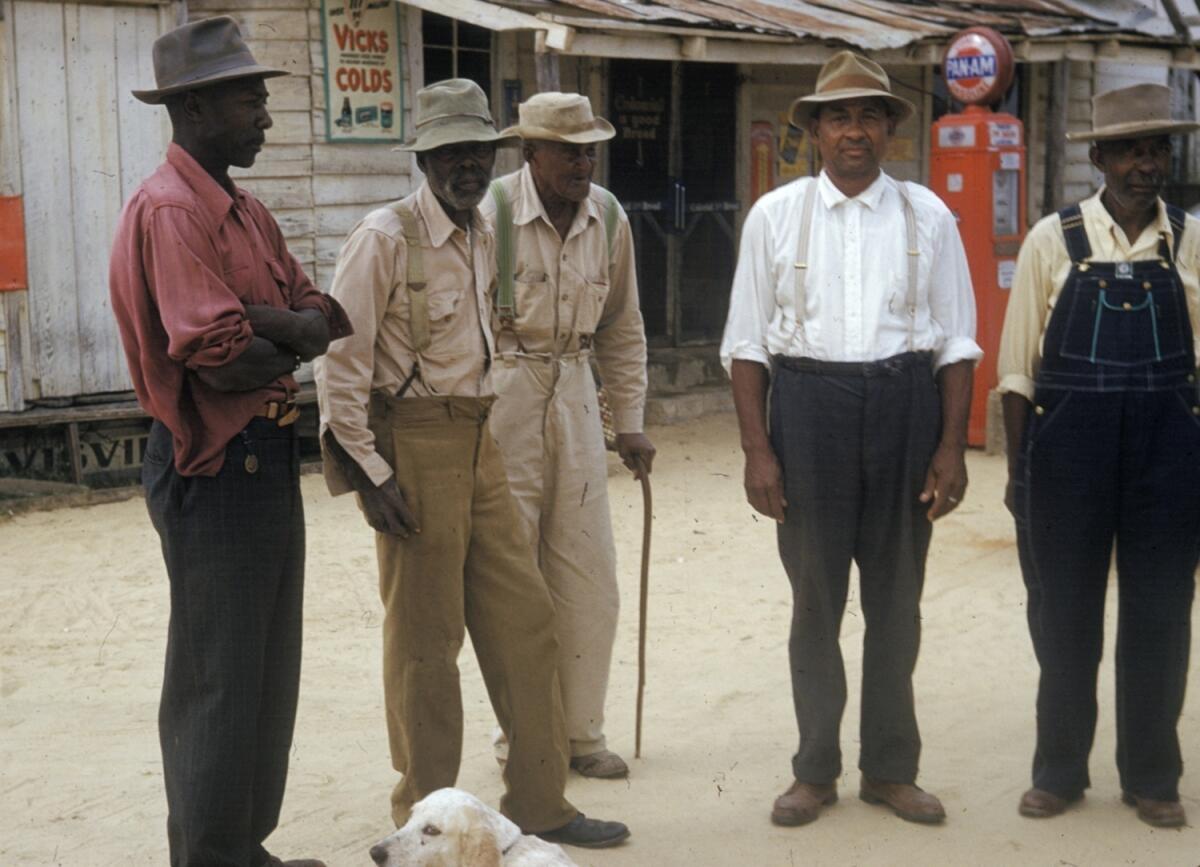
Exposed by a whistleblower in the early 1970s, the Tuskegee experiment is the most infamous in a litany of abuses and questionable studies conducted on black Americans in past decades. For many across the country, it is a metaphor for discrimination and racism within the medical system.
“You cannot think of a more damning betrayal of a doctor-patient relationship than that,” said Dr. David M. Carlisle, president and chief executive of Charles R. Drew University of Medicine and Science.
Now that the nation is in the grips of a pandemic, public health officials must confront a legacy of distrust — handed down from generation to generation — of medical research, healthcare workers and government mandates.
Some are pushing back on the common refrain that black people are dying of COVID-19 at disproportionate rates because they suffer more from preexisting conditions, such as hypertension and heart disease. Instead, they are examining the lasting effects of the Tuskegee experiment, and how the often unfair and unequal treatment of black patients has factored into prevention and care during the pandemic.
There are reasons for concern. In late April, Los Angeles become the first urban area in the nation to offer widespread testing for the novel coronavirus, regardless of symptoms. But preliminary racial data show that black people are underrepresented among the ranks of those tested.
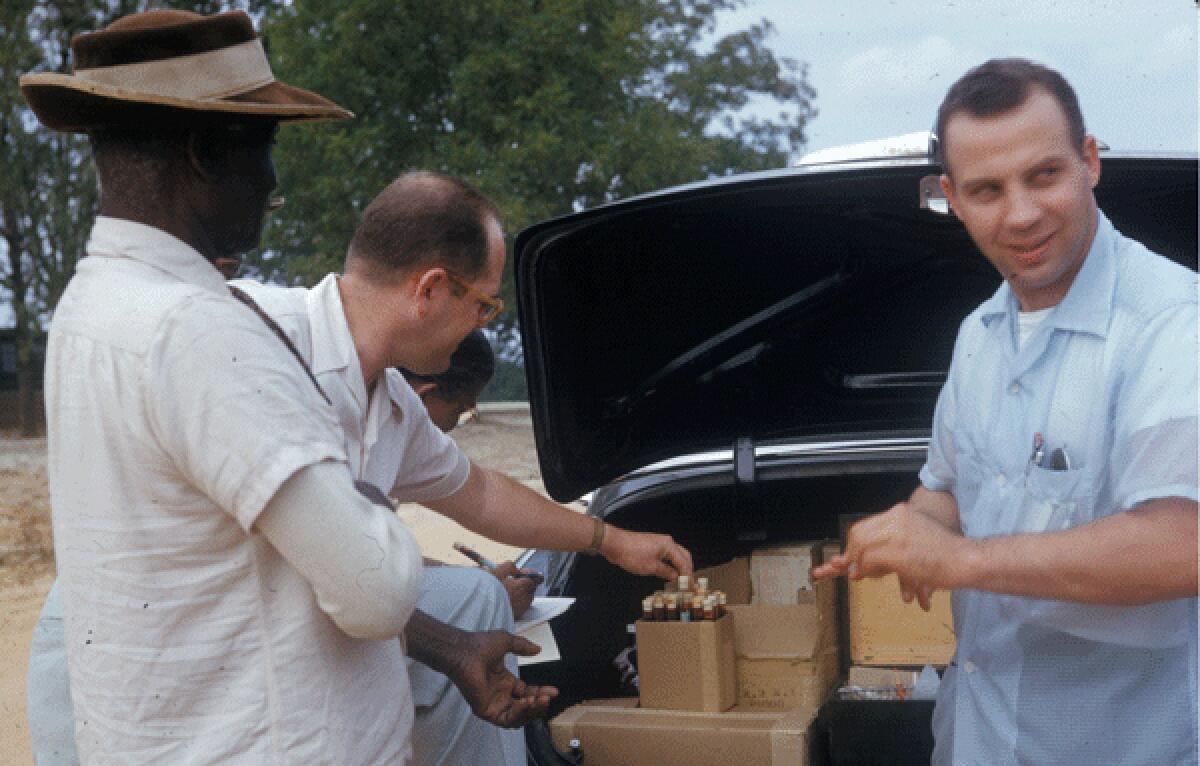
“We can’t talk about the disparity of COVID without talking about the recognition of how those disparities arose and what they reflect,” said Dr. Nadine Burke Harris, California’s surgeon general. “Because it’s not that black people are inherently sicker than others.”
A lot of it boils down to trust, some experts and researchers say.
Decades of discrimination, reinforced by segregated hospitals and an overall lack of access to adequate medical care, have often worked against establishing even a fragile bond between black patients and often nonblack doctors. Research shows that this lack of confidence in physicians and hospitals makes black people less likely to seek medical care or to adhere to recommended treatment plans.
That is particularly problematic when it comes to combating the coronavirus, Burke Harris said.
The most vital tool health officials have in a pandemic is trust that policies and decisions are being made in the public’s best interest. This belief impacts behavior, including whether people obey stay-at-home orders, practice social distancing and follow guidance to wear masks, she said.
There were reasons to worry in the early days of the pandemic. A rumor that black people were immune from the coronavirus was running rampant on social media, likely giving some a false sense of security as they continued with their daily routines against the advice of health officials and elected leaders.
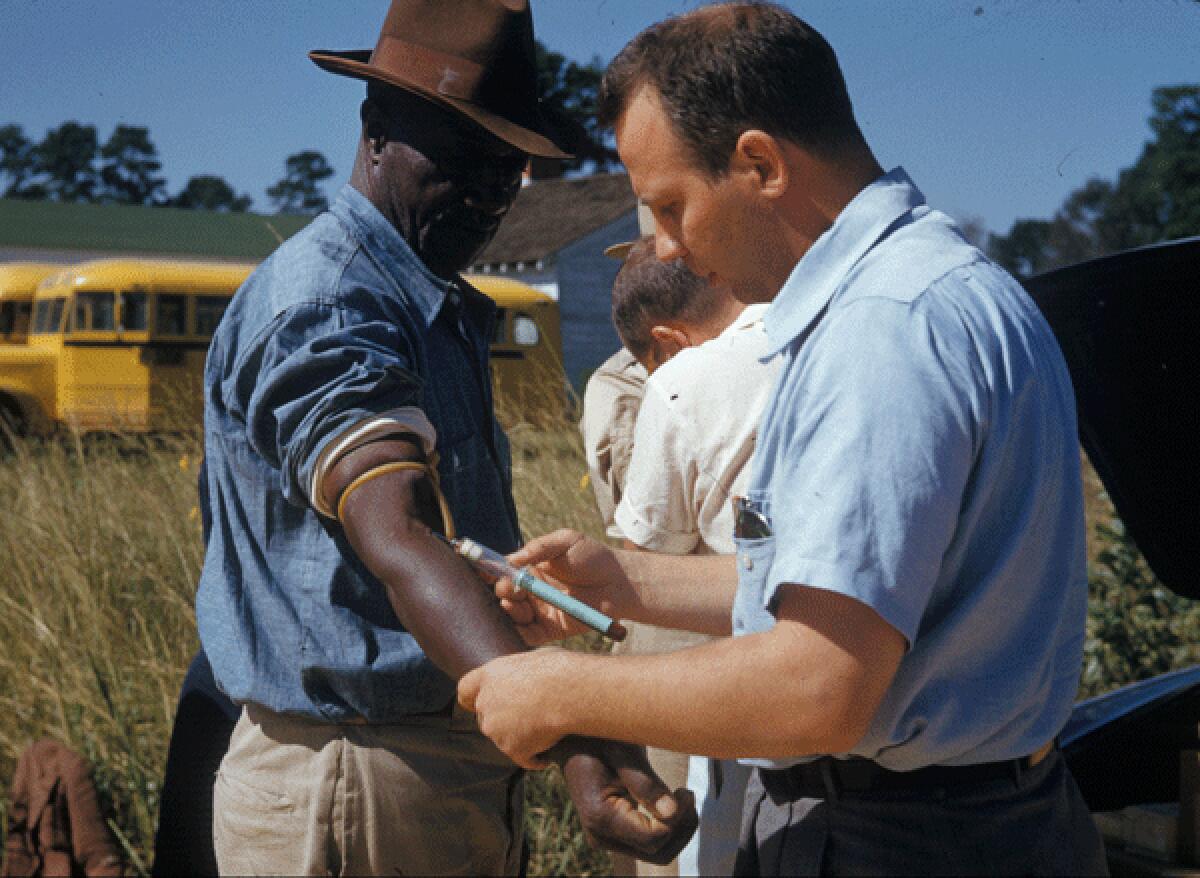
It wasn’t until cities across the country began releasing statistics showing black people contracting and dying of the coronavirus at high rates that the rumor was debunked.
“It’s clear that some of our young people didn’t take this seriously, which included passing on the myth initially that blacks couldn’t catch the coronavirus,” said South L.A. activist Najee Ali. “That myth spread like wildfire on social media, but there was never a concentrated effort from leaders to dispel that myth.”
In the past, elected leaders have leaned on trusted messengers, particularly in communities of color. Pastors, respected elders and activists are frequently enlisted to distribute critical information in town hall meetings, church sermons and other group gatherings. But with the coronavirus, those normal channels of communication have been shut down. L.A. Mayor Eric Garcetti and California Gov. Gavin Newsom have banned large gatherings to slow the virus’ spread.
Dr. Bill Releford, an Inglewood podiatric surgeon, first noticed the disconnect between black patients and the preventative recommendations of their doctors back in 2007. He was treating a large number of people who needed to have toes, a foot or a leg amputated because of complications from diabetes.
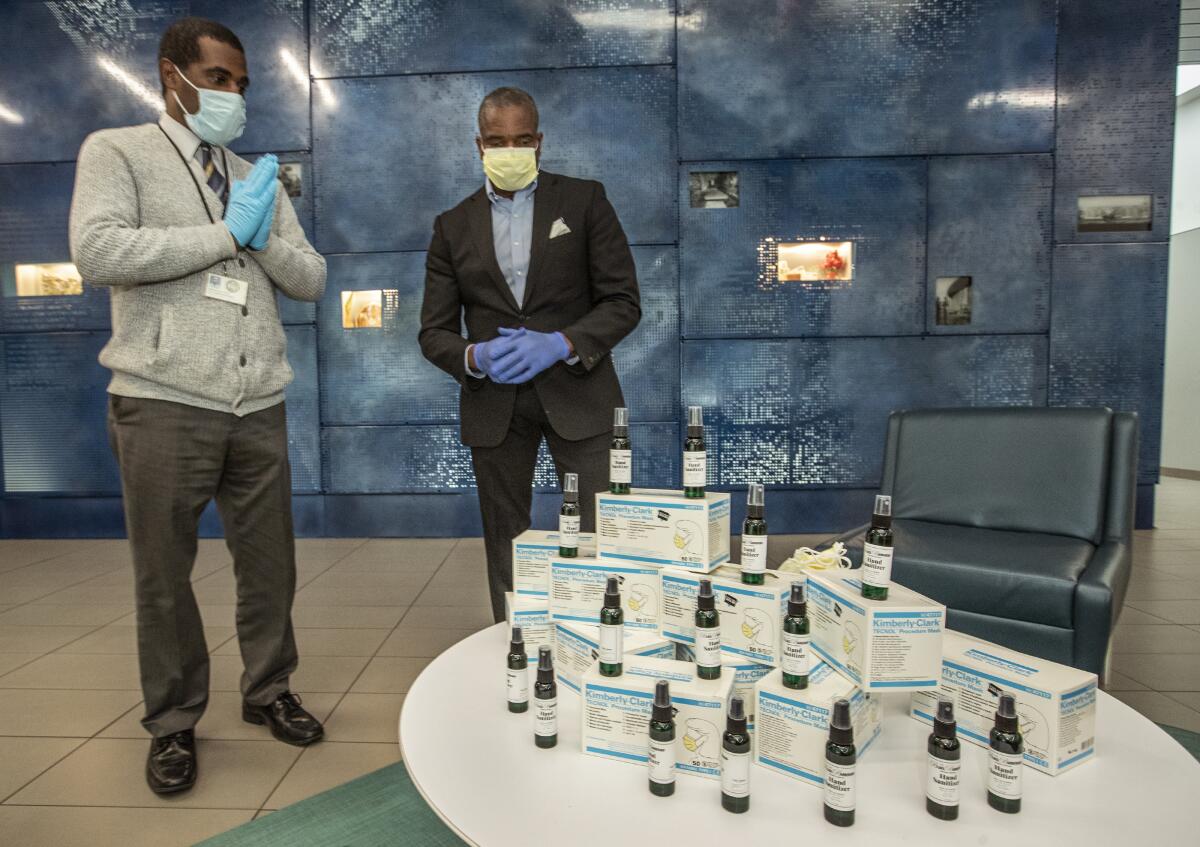
He also noticed that his patients and other black Angelenos lacked access to healthcare to properly diagnose and treat such chronic illnesses. So Releford founded the Black Barbershop Health Outreach Program, an Inglewood-based organization that offers checkups at barbershops.
More recently, he expanded the program nationwide, organizing volunteers to screen 30,000 men. Some arrive in such dire conditions, with their blood pressure at dangerously high levels, that they have to be taken straight from barbershops to the emergency room, he said.
“The same pattern we see for diabetes and high blood pressure, we’re seeing with COVID-19, where there’s a lack of testing and treatment,” Releford said.
Over the years that the podiatrist and his team have treated patients, the legacy of the Tuskegee experiment has come up often.
Formally known as the “Tuskegee Study of Untreated Syphilis in the Negro Male,” it lasted from 1932 to 1972, when a former federal investigator leaked the details of the experiment to a journalist. The whistleblower revealed that doctors with the U.S. Public Health Service were using black men in Macon County, Ala., as test subjects, deliberately withholding treatment for the highly infectious disease syphilis long after penicillin had been found to cure it.
In total, roughly 600 black men — 399 with syphilis and 201 without — were recruited and duped to participate in the study.
In 1974, the men sued and reached a $9 million legal settlement. The federal government agreed to provide medical benefits and burial services to all living participants. Years later, the wives, widows and children of those who were part of the experiment also were added.
But the damage was done.
Some died from complications of syphilis. Others became blind or paralyzed. Several of their wives contracted the disease and passed it on to their children during birth. To this day, 11 offspring of the men who participated in the study still receive government medical and health benefits.
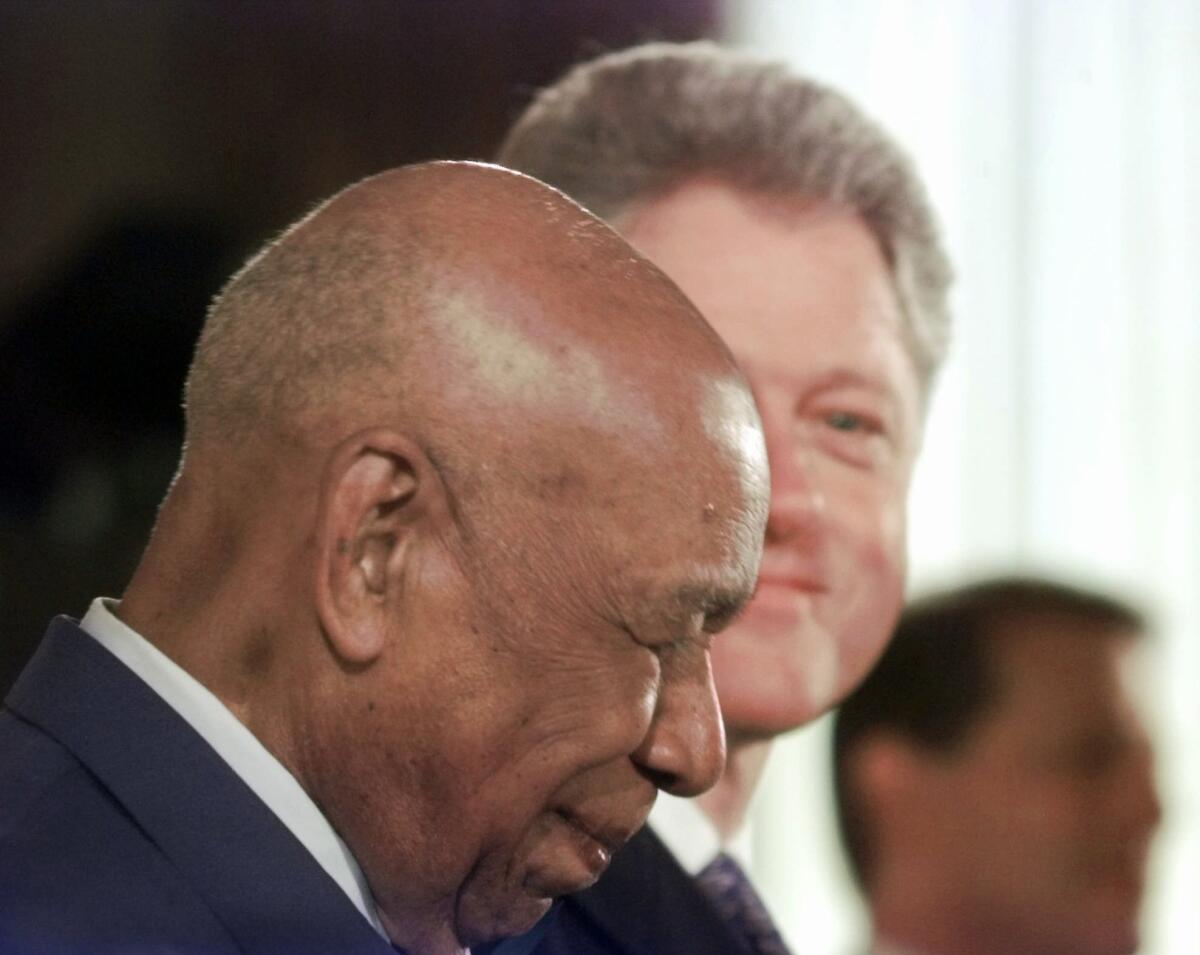
In 1997, President Bill Clinton issued a formal apology on behalf of the federal government.
“We can stop turning our heads away,” the president said during a White House ceremony that was attended by five survivors. “We can look at you in the eye and finally say on behalf of the American people: What the United States government did was shameful, and I am sorry.”
The Tuskegee experiment continues to echo in various ways. Researchers, for example, cite it to explain why black people are less likely to participate in experimental cancer treatments, clinical trials and even to get an annual flu shot.
It’s unclear what this will mean if a vaccine is developed for the coronavirus. Earl Ofari Hutchinson, president of the Los Angeles Urban Policy Roundtable, unofficially polled his social media followers and listeners on his weekly radio show and found that the group was overwhelming against taking any such vaccine.
To Releford, who now passes out free face masks and bottles of hand sanitizer to passersby outside closed South L.A. barbershops, it’s clear to him that the wounds of the Tuskegee experiment have not fully healed.
“The messages of the past do not go away,” Releford said. “We have not as a country reconciled how these misdeeds have affected our people, particularly African Americans, for generations. So until we have a real conversation, I don’t think this issue is going to go away.”
More to Read
Sign up for Essential California
The most important California stories and recommendations in your inbox every morning.
You may occasionally receive promotional content from the Los Angeles Times.


